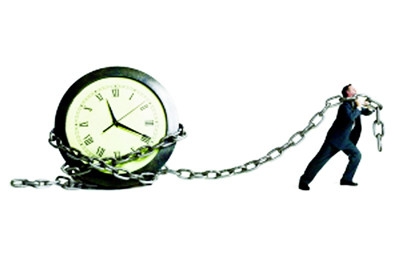Leeches and lances might seem like prescriptions from the past. But bloodletting might be back in vogue. A small study shows that losing a little blood might improve cardiovascular health for obese people who also have what's called metabolic syndrome.
水蛭和柳葉刀似乎是過去的處方。不過,如今放血療法似乎又流行了起來。一項研究表明適度失血可能會改善即患有肥胖癥又患有代謝綜合癥的人群的心血管健康。

The study tracked 33 patients with metabolic syndrome—defined by the presence of some of an assortment of conditions, such as high cholesterol, hypertension and insulin resistance. Researchers took 300 milliliters of blood from the patients, a little less than the one pint standard donation, with a repeat treatment a month later.
該項研究跟蹤了33名患有代謝綜合癥的病人。代謝綜合癥是指一種合并有高膽固醇、高血壓和胰島素抵抗等代謝紊亂的癥候群。研究人員從病人體內(nèi)抽出300毫升的血液,這比獻血正常水平稍低,一個月后重復(fù)抽血。
After six weeks, treated adults had lower blood pressure than the control group. Glucose levels also decreased, which suggests limited blood removal might improve metabolic health. The findings are in the journal BMC Medicine.
六個星期后,對血壓比對照組低的成人進行抽血治療。他們的血糖水平也降低了,這說明釋放一定量的血液有助于改善心血管健康。這項研究發(fā)表在《BMC醫(yī)學(xué)雜志》上。
The researchers think that the blood loss reduces iron levels. And excess iron in the blood has been tied to many metabolic syndrome ailments.
研究人員認為失血會降低鐵的含量。而血液中過多的鐵則與許多代謝綜合癥有聯(lián)系。
The FDA has okayed leeches for some procedures. Which could lead patients to thank their doctors for a treatment that sucks.
美國食品及藥物管理局已經(jīng)同意用水蛭輔助治療。病人們勢必會感謝醫(yī)生,即使治療方式是吸血。
原文譯文屬可可原創(chuàng),未經(jīng)允許請勿轉(zhuǎn)載!












